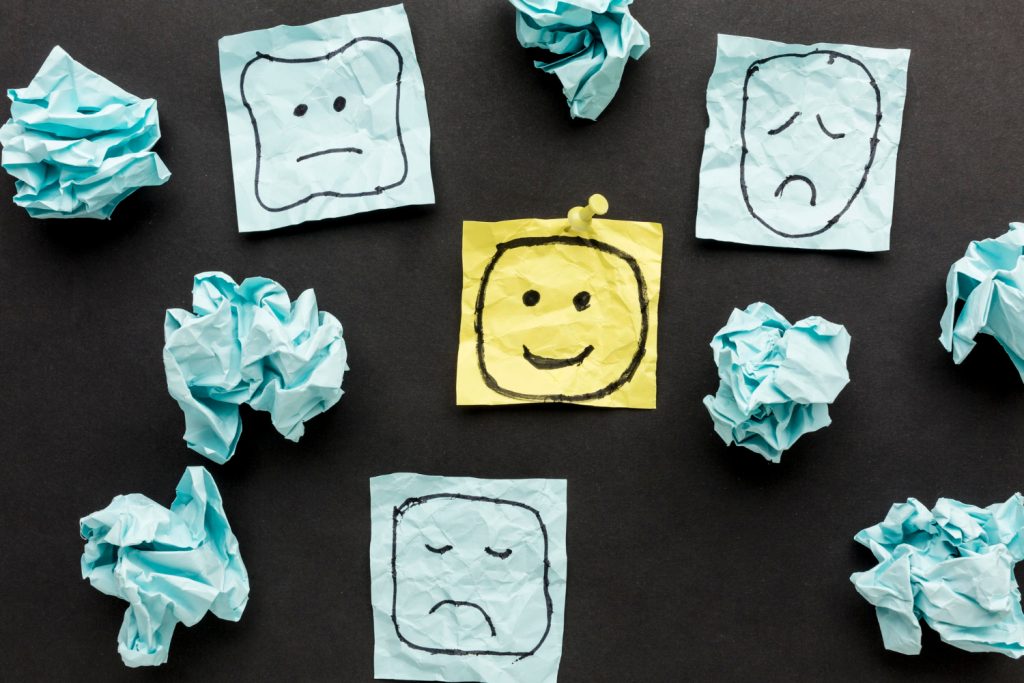You will hardly find a person who went through a divorce and managed to stay completely cool and impartial. It is not surprising since, from a psychological perspective, a marriage dissolution is one of the worst life events, so having hard feelings after a divorce or during this process is normal.
After all, it’s not only about coping with divorce itself but also about beginning a new period of your life and going out of your comfort zone. Even if you cannot avoid all those negative emotions, you may try to alleviate them and stay more or less calm. If you have no idea how to get through a divorce without turning into a nervous wreck, read this article with some great practical tips.
Why are divorces so emotional?
Even though you may have lots of hard feelings towards your spouse, the question, “Why is divorce so hard?” may still come to your head. Divorces are so difficult to go through for a simple and obvious reason: you are parting ways with a person who once was very important and maybe still is to you. You’ve spent years with them, created a family, settled down, and shared all the ups and downs. And now, it’s time to move on without the person who once was your second half.
Many spouses have to deal with anger, sadness, shame, and despair at this point in their lives, and having such mixed emotions is completely normal. Unfortunately, being in such a state for a long time often leads to negative consequences. It has been reported that divorced individuals have noticed detrimental changes in their mental and physical health more often than those who stay in the marriage.
You may think that the idea that divorce is bad for your health is too obvious. However, the truth is that many of us make the mistake of ignoring our needs during rough times, resulting in detrimental effects on our well-being. Therefore, it’s paramount to take care of your mental health when you are so vulnerable and seek professional emotional support for divorce or just be around the people you love to find solace in the current situation.
Finally, it is also important to adopt several effective techniques that will help you go through a divorce as painlessly as possible.
Taking care of yourself after a breakup
It’s not easy to figure out how to cope with divorce and all the hard feelings associated with it. If you have no idea what to do when going through a divorce, get acquainted with these amazing tips for divorce with less stress:
- Recognize that it’s OK to have different feelings.
One thing we know for sure is that it is totally fine if you have both positive and negative emotions about the situation. If you grieve, let yourself grieve. If you feel anger and resentment towards your spouse, it is OK, and you should not be ashamed of that. And in case you feel nothing but happiness and delight, rejoice! After all, divorce is a bittersweet event for some people and the end of a once-good story.
However, if you are overwhelmed, and it affects your quality of life, maybe it is a good idea to seek therapy. An experienced professional will help you figure out your feelings, work them out, and have a fresh start.
- Give yourself a break.
Feeling tired and having no inner resources, even for the most important tasks, is a typical situation for those who go through a divorce. The best you can do at this time is not to be too hard on yourself. You deserve to have some rest from the daily routine.
If you have such an opportunity, take personal time off from work and spend these days doing things that make you feel better, even if it’s just sleeping all day long or binge-watching your favorite TV show.
- Don’t go through this alone.
Divorce is a devastating event, and when you have nobody to ease your pain, it becomes even worse. If you know you have this one person who is always here for you, do not hesitate to make a phone call or arrange a meeting.
With friends and family on your side, you will go through this period with less stress and without feeling lonely. After all, nobody deserves to suffer in silence.
- Take time to explore your interests.
Maybe you’ve always wanted to take up dance classes or join candle-making workshops but still managed to find more serious tasks instead. Having no time for personal needs and hobbies is quite common in adult life, but now it’s time to finally break the vicious circle and do something for yourself.
You should realize that you deserve a great life full of things you are curious about. Trying something new will improve your mood and bring back the taste of life. So, if you look at your schedule one more time, you can definitely find an evening or two to devote to some exciting activities.
- Treat yourself!
Eat that cake! Or buy yourself a beautiful bouquet. Have a dinner in a nice place. Or just go on a shopping spree. Treating yourself in these difficult times is the best thing you can do. Start by arranging at least one “me day” per week when you can do whatever you want, and you’ll see how your mood is getting so much better.
- Take care of your well-being.
It is not only about mental health but also a physical one. A well-known factor is that our inner state can have a negative influence on our physical condition. Taking care of your health means sticking to simple routines, such as eating well-balanced meals, going to sleep and waking up at a specific time, practicing sports, going for a walk every day, and drinking enough water.
If you start following at least some of these tips, you will soon realize that you feel better mentally and physically. By being kind and attentive to yourself, you can balance the well-being of your body, mind, and soul.
- Practice gratitude.
When the world around you seems gray and hopeless, it is important to ponder over things you are genuinely grateful about. You may be skeptical about this one, but mental health experts advise those who go through a hard life period to write down at least three things they feel gratitude for every morning or evening. It may be something really plain, like a sunny day, delicious coffee from your favorite barista, your warm and cozy apartment, and so on.
Even though you may feel like everything is collapsing, this simple trick may help you realize the great things you have in your life.
- Be strong for your children.
There is no doubt that a divorce is an extremely stressful event for spouses, but it is no less devastating for your kids. Children definitely need a strong mother or father who does not let their emotions take over and ruin their bond. Moreover, kids can feel the anxiety of their parents on an intuitive level, a thing that makes them depressed, too.
You surely have a right to feel sadness and pain but do your best to show your kids you know how to work things out. And what is no less important is supporting your children during this period.

When kids are involved
As we already said, helping children cope with divorce is your paramount task as a parent. Unfortunately, all the researchers agree on the negative effects of divorce on children that may even have an influence on their lives as adults. Kids love both of their parents and seeing them apart is a hurtful experience. That is why you and your spouse must do your best to get along and prioritize the child’s physical and emotional needs.
Here is some advice on how to make the life of children better during the difficult post-divorce period:
- Never avoid having a sincere conversation.
Of course, there are some things that children should not know about for their own sake. But ignoring your child’s requests to talk about their feelings or leaving some questions unanswered will definitely hurt them even more. Your kid may feel like nobody cares about them and shut off from you and the rest of the world.
Try to be as sincere as possible in your situation, and always remind your kids how important they are to you and your spouse.
- Let your children know that your divorce is not their fault.
You may be surprised by this fact, but many children put the blame of their parents’ divorce on themselves, especially during certain developmental stages. For example, it is common for kids to think that their parents decided to divorce simply because children misbehaved.
Your main task, in this case, is to explain to your child that you’ve made a decision to end a marriage due to your personal reasons and in no way because of your kid’s actions. You and your spouse should show a lot of love and attention to your children so they stop struggling with guilt.
- Do not badmouth your spouse in front of your kids.
You may feel resentful by your spouse’s words or actions, but you should never involve a child in a fight between the two adults. A kid loves you and your spouse, and hearing you maligning their mother or father will only hurt their feelings. If you had a hard divorce and are still on bad terms with your spouse, it is best not to say anything about them at all and respect your child’s attitude towards the other parent.
- Have “fun” days.
Divorce is one of the most stressful events for any child, so making their life a bit brighter is the best thing you can do. For example, you can arrange one “fun day” per week when you do whatever your kids want to do. Your little ones will definitely enjoy it and will be looking forward to this day the whole week.
All of us can remember the happy days from our childhood: a favorite ice cream every Sunday, trips to Disneyland, playing hide and seek in the backyard, or telling spooky stories next to the fire. And your children will remember those moments for the rest of their lives, too.
- Do not suppress your children’s emotions.
Phrases like “Calm down!”, “Try not to think about it,” and “Do not cry” will never help you bring up a healthy and happy individual. You may be in pain, but your kids feel the same pain, too, and have the right to experience a myriad of emotions.
If your child cries, let them cry if there’s nothing you can do for them at that moment. Teach your child to feel this spectrum of emotions instead of suppressing them, and you’ll see how they are getting better each day. And, of course, if you notice drastic changes in the mental state of your child, it is best to seek professional help.



